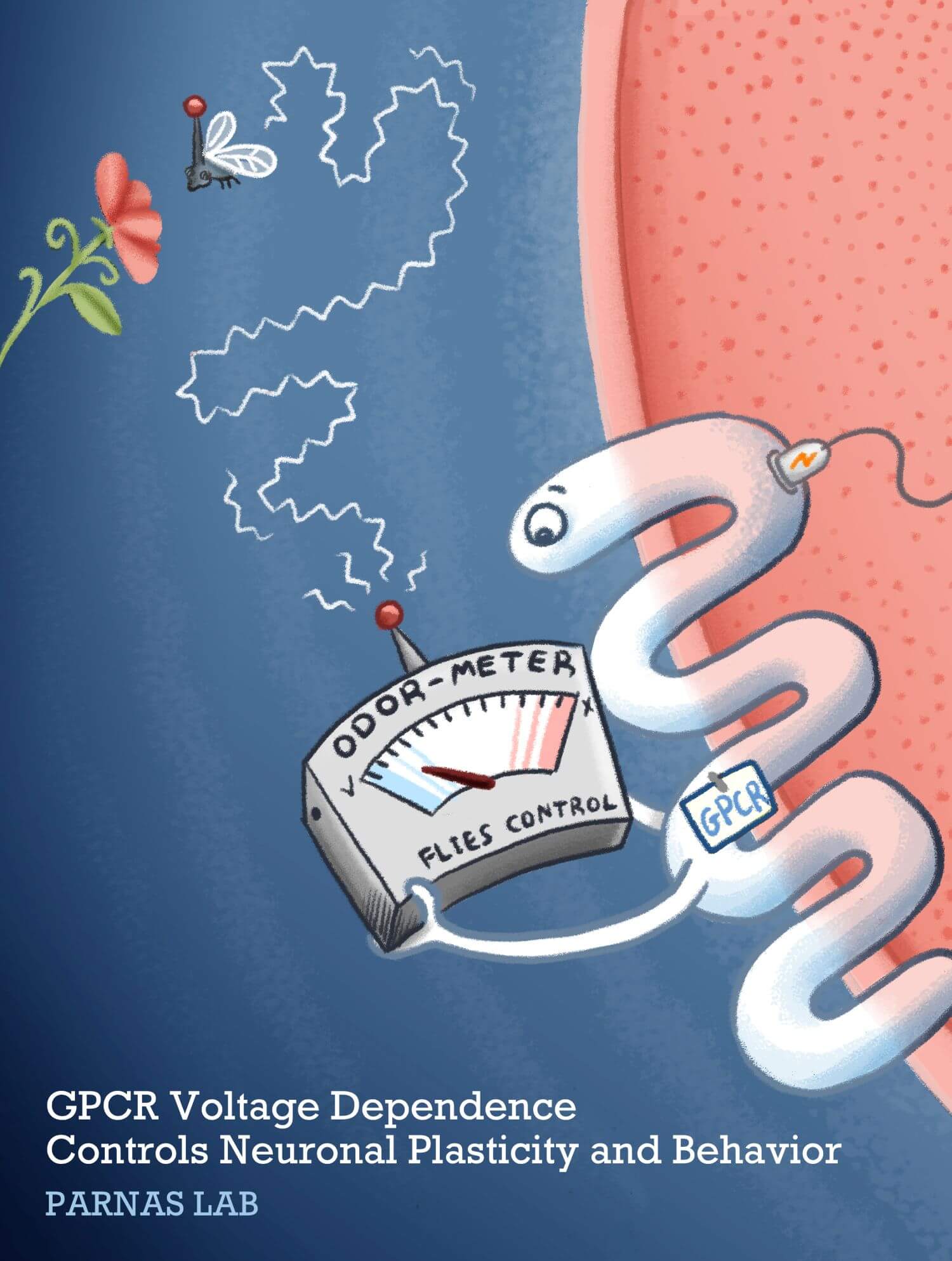A new study by Tel Aviv University found for the first time a direct and clear connection between changes in the G protein-coupled receptors and the brain's ability to get used to external changes

A new study by Tel Aviv University, for the first time, found a direct and clear connection between changes in the G protein-coupled receptors and the brain's ability to get used to external changes. The study, recently published in the journal Nature Communications, was conducted by Dr. Moshe Parnes and his team from the Sackler Faculty of Medicine and the Segol School of Neuroscience at Tel Aviv University.
Our brain has a very large amount of G protein-coupled receptors (GPCR). Activation of these proteins causes a chain of chemical reactions inside the cell. They are very common in the brain and are involved in almost every brain activity, such as learning and memory. The nerve cells in which the GPCRs are common, experience changes in their electrical voltage. 20 years ago, it was surprisingly discovered that the GPCRs are voltage-dependent, meaning they sense the changes in the electrical voltage of the nerve cells and change their function depending on the voltage. However, until today it was not clear if the stress dependence of the GPCR proteins has a physiological importance that affects brain activity, our perception and behavior. In fact, the scientific mindset was that this stress dependence has no physiological significance.
Dr. Frans and his team investigated, using the olfactory system of the fruit fly, whether the stress dependence of GPCRs is important for brain function. To this end, the researchers decided to focus on one receptor from the family of G protein-coupled receptors (named "type A muscarinic"). This protein is involved, among other things, in getting used to the smell, a process in which the strength of the reaction to the smell decreases following continuous exposure to it. Thanks to this mechanism, a few minutes after entering a room with a distinct smell - you stop smelling it.
Dr. Frans explains: "The nerve cells are able to communicate with each other, and brain flexibility is expressed in the ability of the nerve cells to create new connections with each other and change existing connections - thus influencing behavior. Type A muscarinic protein is involved in strengthening the connection between nerve cells, and strengthening this connection causes the flies to get used to the smell and indicates normal brain flexibility."
During the study, the researchers succeeded by genetic editing to neutralize the voltage sensor of the type A muscarinic protein and thus eliminate its dependence on the electrical voltage of the nerve cell. The researchers discovered through molecular, genetic and physiological methods that the cancellation of the stress sensor actually causes uncontrolled brain flexibility and therefore a process of habituation to an excessive and uncontrolled smell. Dr. Frans adds: "We found that the receptor in question is very involved in strengthening the intercellular connection in the brain, much more than we thought. When we disabled its voltage sensor, the connection between the neurons became excessively strong.
According to Dr. Frans, "These findings change our perception of G protein-coupled receptors. To date, no attention has been paid to the effect of electrical voltage on their function and its consequences on brain flexibility and behavior. These receptors are involved in many brain systems and diseases, and we have now discovered a control mechanism on which we can try to base drug treatment. Following this, we continue to investigate additional receptors. It is likely that their dependence on the electrical voltage is important in other systems and not only in the olfactory system."
It should be noted that this study by Dr. Farnes is a continuation of the research conducted by his parents, Prof. Hana Farnes and the late Prof. Yitzhak Farnes, about two decades ago. They were the first to discover that GPCR receptors can sense electrical voltage in cells, but their research remained at the protein level only. The current research by Dr. Frans and his team moves to the next stage, connecting molecules, brain and behavior and shows for the first time that eliminating their ability to sense electrical voltage affects brain activity and our ability to adapt to the environment in an optimal way.
More of the topic in Hayadan:

3 תגובות
Really interesting connection to autism. At least at night the sleep waves are relatively low compared to the rest of the population, I wonder if there is a connection
Is it possible that an electric voltage that is too high causes it to "contract", similar to a muscle, until it is unable to "release" and allow the cell to receive information. Can it be linked to communication interference on the spectrum?
Maybe that's why they gave electric shocks to people with depression, etc.?